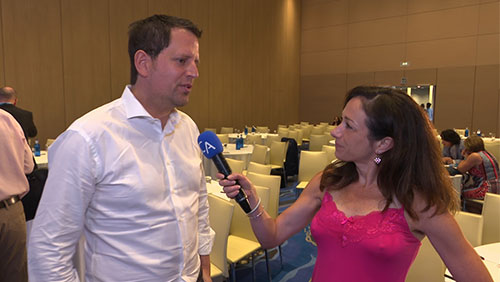In this interview with CalvinAyre.com’s Becky Liggero, Marcus Geiss of Navidad Foundation explains why lottery operators shouldn’t worry much when it comes to attracting millennials to play the game.
Gambling operators are fighting tooth and nail to attract millennials, who now make up the majority of the global workforce.
Knowing that millennials are more discerning compared to the so-called baby boomers when it comes to buying products and services, many gambling operators’ knee-jerk solution is to bombard these first generation of people raised in the internet age with new, unique, and exciting offerings.
This, however, is not the case in the lottery industry, according to Marcus Geiss of Navidad Foundation.
While the gambling industry continues to be obsessed with pleasing the millennial market, Geiss said “the whole discussion of millennials is not relevant to lotteries.”
He pointed out that millennials are more concerned with living in the moment and having fun right now, and these attitudes fit well in other forms of gambling. Lotteries, on the other hand, are about buying a dream, and thus appeal more to older client groups.
Geiss said that people grow naturally into lottery products and start to buy in when they have different needs than a 25-year-old.
“You buy that dream today and the dream lasts until the next Saturday when the draw takes place and you learn that you have not won. This is more interesting and relevant to older client groups, I believe,” Geiss told CalvinAyre.com. “Because if you think about the younger person – let us say 25 years – what will a 25-year-old do if he has €20 left? He thinks about ‘how can I entertain myself?’ or ‘where can I buy the next beer?’ and ‘where’s the next party?’”
To stay relevant in changing times, Geiss said that lottery operators don’t need to add new products. All lottery operators need to do, according to Geiss, is to optimize their existing structures and sales channels.
“It is not so much about adding new products unlike the gambling side that they’re adding hundreds or maybe even thousands of new games. We cannot do this for lotteries. It doesn’t make sense,” he said. “So, it is about innovation of sales channels and some smaller product innovations like, for example, Christmas lottery that you don’t just increase the jackpot but change the logic. Interesting prize, but for more people and not just one big prize for a single winner.”
